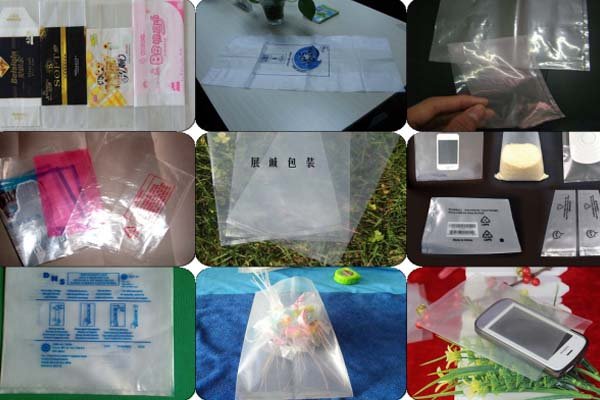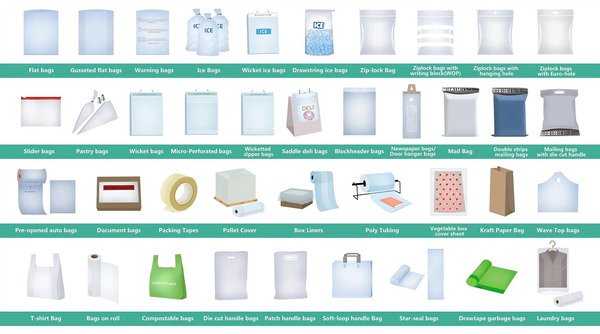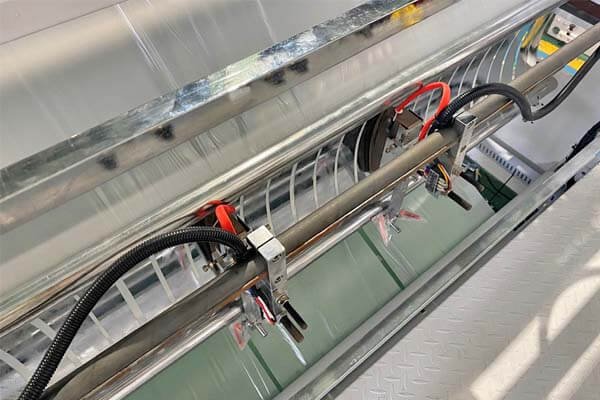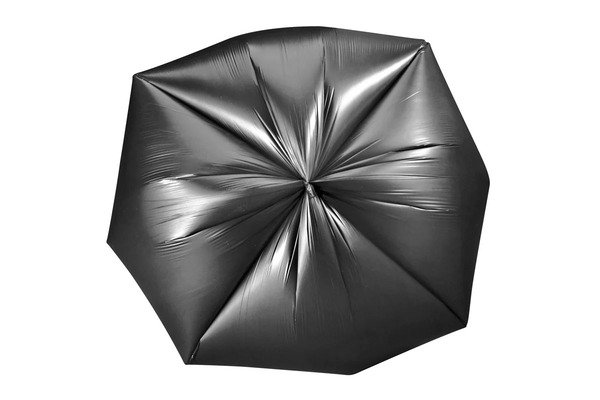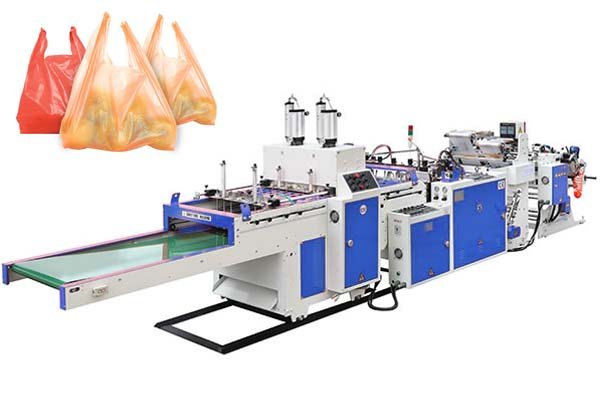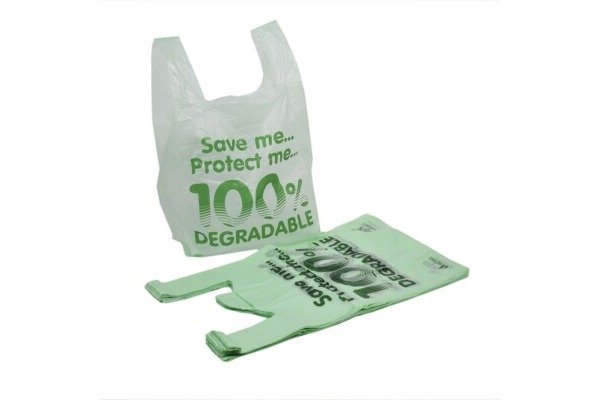
Are you trying to understand the real size of the plastic bag industry? The numbers might surprise you. Understanding this market is the first step toward finding your place in it.
The global plastic bag market1 was valued at around $23.5 billion in 2023. This massive figure highlights the industry's significant scale, driven by continuous demand from retail, food service, industrial sectors, and e-commerce across the globe.
This huge valuation points to a dynamic and essential global supply chain. The market covers everything from the simple T-shirt bags you get at the grocery store to highly specialized courier envelopes and sterile medical packaging. At BagMec®, we see this incredible diversity firsthand in the orders we receive. Our clients from over 50 countries need machines for a vast range of products, proving just how vital plastic bags are to modern life. The industry's size is a direct result of the bag's versatility, low cost, and effectiveness in protecting and transporting goods.
The key factors driving this market are clear. First, the unstoppable growth of global retail and e-commerce creates a constant need for shopping bags and secure courier mailers. Next, the food and beverage industry depends heavily on plastic bags for hygiene, preservation, and portion control. Finally, many industries use heavy-duty bags for everything from construction materials to agricultural products. Our machines, like the T-Shirt Bag Making Machine and the Heavy Duty Bag Machine, are built to serve these different but connected market segments.
What is the future outlook for plastic bags?
Are you wondering where the plastic bag industry is going? The future isn't about disappearing; it's about evolving. Let's look at the powerful trends that are shaping tomorrow's market.
The future of plastic bags is centered on sustainability and high-performance specialization2. We are seeing a major shift toward recyclable and biodegradable materials, along with growing demand for advanced, application-specific bags for e-commerce, food safety, and medicine.

The conversation around plastic bags is changing. It's no longer just about cost and volume. The new focus is on intelligence, performance, and environmental responsibility. As a machinery manufacturer, we are at the forefront of this evolution, designing the equipment that makes these next-generation products possible. Let's dive deeper into the specific trends defining the future.
The Sustainability Revolution
The demand for eco-friendly solutions is no longer a niche request; it's a global movement. Consumers and governments are pushing for change, and the industry is responding. This has led to an explosion in material innovation.
- Recycled Content: More brands are using post-consumer recycled (PCR) resins to reduce virgin plastic use. Our machines are engineered to handle the slight variations in recycled materials, ensuring consistent quality.
- Biodegradable & Compostable Plastics: Materials like PLA (polylactic acid) are becoming more common, especially in food service and retail. We co-developed a machine with a U.S. eco-brand specifically for producing 100% compostable PLA shopping bags. Our patented "Smart Tension Control" system is perfect for handling these newer, more sensitive films without tearing or stretching.
- Energy-Efficient Production: Sustainability also means using less energy. Our machines incorporate energy-saving servo motors that reduce power consumption by up to 30%, lowering operational costs for our clients and reducing their carbon footprint.
The Rise of Specialized and High-Performance Bags
A one-size-fits-all approach no longer works. Modern industries demand bags engineered for specific tasks, and that's where true value is created.
High-Performance Bag Demands by Industry
| Industry | Key Requirement | BagMec® Solution Example |
|---|---|---|
| E-commerce & Logistics | Tear-resistance, tamper-evidence, light weight | Our Courier Bag Making Machine produces reinforced seams and can integrate QR code printing. |
| Food & Beverage | Freshness preservation, barrier properties, safety | Our Lamination Pouch Making Machine creates multi-layer bags for superior protection. |
| Medical & Hygiene | Sterility, Aseptic production, compliance | Our Diaper Bag Making Machine lines can be built to meet strict hygiene standards. |
| Retail | Durability for reuse, branding, high speed | Our Loop Handle Bag Making Machine creates sturdy, reusable bags at high speeds. |
This trend toward specialization is a huge opportunity. Our clients, from an Indian logistics giant needing a custom courier bag line to a German packaging supplier running our FFS machines, succeed by meeting these precise needs.
Technology and Automation: The New Standard
To stay competitive, manufacturers must embrace automation. Technology is the key to improving efficiency, reducing errors, and meeting complex demands.
- Full Automation: Our most advanced systems are fully automated, using PLC controls and intuitive touchscreen interfaces. This reduces the need for manual oversight, minimizes labor costs, and increases output.
- IoT and Remote Diagnostics: We are integrating IoT capabilities into our machines. This allows for remote monitoring and predictive maintenance, helping our clients achieve near-perfect uptime—like our German partner who reached 99%.
- Precision Engineering: Features that were once optional are becoming standard. This includes precision die-cutting for unique shapes, logo embossing units for branding, and our "Smart Tension Control" for flawless film feeding.
Are plastic bags becoming illegal?
You hear a lot about plastic bans in the news, making it seem like all plastic bags are on their way out. Is that really the case? The truth is more complex.
No, plastic bags are not becoming illegal everywhere. Instead, governments are implementing targeted regulations, often banning specific types like thin, single-use carrier bags. The goal is to reduce waste from a problem product, not to eliminate all plastic bags, many of which are essential.
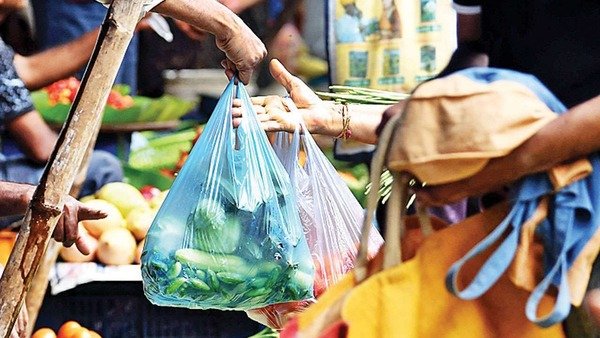
These regulations are creating market shifts, not market closures. For manufacturers, this is a moment of opportunity. The demand is moving from cheap, disposable bags to higher-value, compliant, and sustainable alternatives. As a machine builder, we help our clients pivot to meet these new legal landscapes.
Understanding the Different Types of "Bans"
The term "ban" is used loosely. Most regulations fall into one of these categories:
- Outright Bans: These are the strictest rules, making it illegal to produce, import, or distribute specific types of bags. Kenya's ban on single-use carrier bags is a well-known example.
- Fees and Taxes: Some regions, like parts of the UK and Germany, require retailers to charge customers a fee for new bags. This discourages use without making bags illegal.
- Material and Thickness Requirements: Many laws, like those in California, ban thin plastic bags but allow the sale of thicker, reusable plastic bags or paper bags. They also often allow thin produce bags for food safety.
Global Regulatory Landscape: A Snapshot
| Region | Type of Regulation | Bags Commonly Targeted | Bags Commonly Exempt |
|---|---|---|---|
| European Union | Single-Use Plastics Directive | Thin, lightweight carrier bags | Thicker reusable bags, food produce bags, industrial packaging |
| China | Phased bans on non-degradable bags | Single-use shopping bags, utensils | Bags for pre-packaged goods, agricultural film |
| USA | Varies by state (e.g., CA, NY) | Thin, single-use grocery bags | Produce bags, pharmacy bags, durable reusable bags |
| India | Nationwide ban on specific single-use items | Carrier bags below a certain thickness | Multi-layer packaging, branded packaging for export |
How the Industry is Adapting and Thriving
These new rules are a powerful driver of innovation. At BagMec®, we don't see them as a threat; we see them as a roadmap for the future.
- Pivoting to Reusability: Many of our clients are now investing in our Loop Handle Bag Making Machine or Patch Handle Bag Making Machine. These produce the exact type of durable, reusable bags that comply with new regulations and meet consumer demand for quality.
- Embracing Biodegradable Materials: Regulations often explicitly exempt or encourage compostable bags. This has driven demand for our machines that are compatible with PLA and other bioplastics, as seen in our work with a US-based eco-brand.
- Focusing on Exempt Categories: It's crucial to remember that the vast majority of plastic bags are not affected by these bans. Industrial packaging, heavy-duty sacks, food-grade pouches, and medical bags remain essential. Our FFS Bag Machine and Side Sealing Bag Machine continue to serve these stable, growing markets.
Who is the largest producer of plastic bags?
When you consider the billions of bags used daily, a natural question arises: who makes them all? The answer isn't a single company, but a vast and diverse global network.
The plastic bag market is highly fragmented, so there is no single "largest" producer. Production is led by major packaging corporations like Amcor and Berry Global in specific segments, but thousands of regional and specialized manufacturers make up the bulk of the industry.
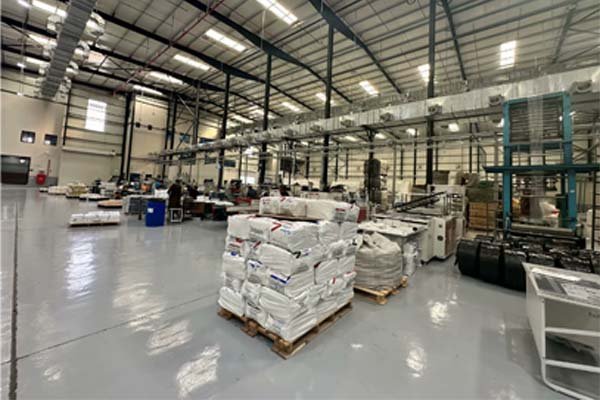
The structure of the plastic bag market is complex. It includes multinational giants, strong regional players, and nimble specialists. As a provider of manufacturing equipment, we have a unique view into this ecosystem, as we empower companies of all sizes to produce high-quality bags.
The Global Giants
A few multinational corporations have a massive share of the overall flexible packaging market.
- Amcor plc: A global leader in developing and producing responsible packaging for food, beverage, pharmaceutical, and medical applications.
- Berry Global Group, Inc.: A major supplier of a broad range of innovative packaging solutions, including films and bags for consumer and industrial markets.
- Sealed Air Corporation: Known for its brands like Bubble Wrap and Cryovac food packaging, they are a giant in protective and food-safe packaging.
These companies operate on a massive scale, often focusing on high-volume contracts with major global brands.
The Power of Regional and Specialized Manufacturers
While giants dominate headlines, the true engine of the industry is the thousands of small and medium-sized enterprises (SMEs). These companies are often the most innovative and responsive to local market needs.
This is where BagMec® plays a crucial role. We provide the high-quality, reliable machinery that allows these businesses to compete and win.
- Local Market Expertise: A manufacturer in Mexico knows the specific needs of local medical suppliers. We can provide them with a machine, like our Diaper Bag Making Machine, customized for aseptic production.
- Agility and Customization: An e-commerce startup in India might need a compact and affordable solution. Our Courier Bag Making Machine (priced from $23,000) is a perfect fit, allowing them to scale quickly.
- Niche Domination: A European company focused on sustainable packaging can partner with us to build machines for biodegradable materials, giving them a competitive edge.
Our flexible MOQ of just one machine allows new entrepreneurs to enter the market, while our capacity to deliver complete production lines supports the growth of established regional champions.
Production by Geography
Manufacturing is not evenly distributed. Certain regions have become global centers for production.
- Asia-Pacific: Led by China, this region is the world's largest producer of plastic bags. This is due to its immense manufacturing infrastructure, skilled labor, and large domestic demand. Our headquarters in Wenzhou, China—a global hub for packaging machinery—gives us a strategic advantage in innovation and supply chain management.
- North America and Europe: These are major markets with significant production capabilities. They often specialize in high-performance, technologically advanced packaging, such as multi-layer laminated pouches and medical-grade bags. Our strong export markets to Europe and the Americas reflect the demand for our high-precision, CE-certified machines.
Conclusion
The plastic bag market is not in decline; it is in a period of powerful transformation. The future belongs to innovative manufacturers who embrace sustainability, focus on high-performance niches, and leverage automation. At BagMec®, we build the machines that empower you to lead this change.
-
Explore this link to gain insights into the plastic bag market's dynamics, trends, and future outlook, which are crucial for understanding industry opportunities. ↩
-
Discover how sustainability is reshaping the plastic bag industry, driving innovation and creating new market opportunities for businesses. ↩


